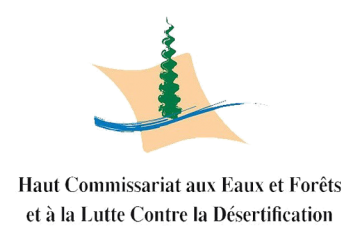Estimating the costs/benefits of REDD+ in Morocco Maroc
![]() AGRICULTURE
AGRICULTURE ![]() ENVIRONMENT
ENVIRONMENT ![]() FORESTRY
FORESTRY ![]() TRANSVERSAL
TRANSVERSAL


Services: Strategic analysis and foresight, Technical and economic advice, Diagnostics and feasibility studies
Countries: Maroc
Dates of intervention: 2012/09 - 2012/12
Amount executed: 20 385 €
Total amount of the service: 20 385 €
Main backer: Agence de coopération technique allemande - Client
Main beneficiary: Haut commissariat aux eaux et forêts et à la lutte contre la désertification du Maroc
Support provider: SalvaTerra
Experts: Olivier BOUYER, Maden LE CROM
Certificate of satisfactory executionEtude coûts et avantages du mécanisme REDD+ pour le Maroc
Context of the service
GIZ is implementing a regional project entitled "Adaptation to climate change of forest policy framework conditions in the MENA region", targeting Algeria, Lebanon, Morocco, Syria, Tunisia and Turkey. Ahead of the Doha Climate Conference at the end of 2012, a positioning workshop on forest and climate negotiations was organized by this project, bringing together representatives of the High Commission for Water and Forests and the Fight against Desertification (HCEFLCD) and the Ministry of Energy, Mines, Water and Environment (MEMEE). One of the recommendations at the end of the workshop was to conduct a study to produce conflicting arguments on the environmental, social and economic costs/benefits of REDD+, so that Moroccan decision-makers can make informed decisions.
Services provided
Future GHG emissions and removals from forests were estimated, taking into account overgrazing, fuelwood removal, forest fires and reforestation. The technical potential for reducing emissions and increasing GHG removals as well as the costs of the necessary actions were assessed on the basis of past and current planning documents. The valuation of these carbon gains was then estimated on the basis of assumptions on the evolution of the carbon price.
The study also estimated indirect non-market benefits (related to building resilience, ecosystem restoration and protection, etc.) and indirect costs (transaction costs related to the implementation of policies and measures, social and economic costs related to restrictions on right of use).
Summary of the service
Estimating the costs/benefits of REDD+ in Morocco: Estimating future GHG emissions and removals in forests; Estimation of the technical potential for reducing emissions and increasing GHG removals; Estimation of implementation costs and associated carbon gains; Estimation of other costs (transaction costs of policies, restrictions on user rights, etc.) and benefits (building resilience, ecosystem restoration and protection, etc.).